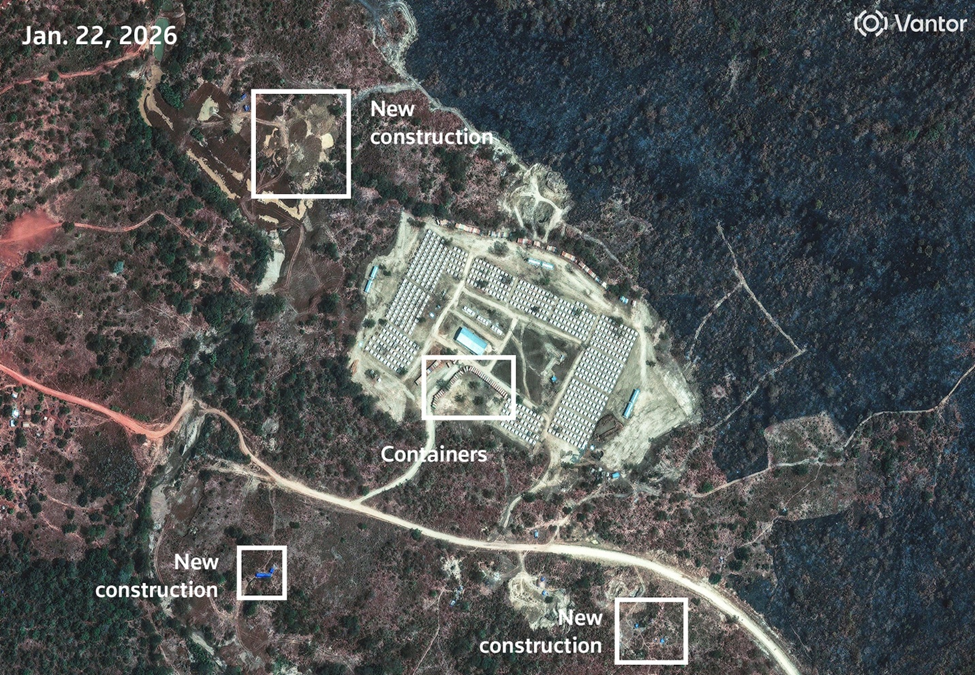Kenya’s original ICC six – Where are they now?
- The Africa Report
- Dec 11, 2020
- 3 min read
Early November, Kenyan lawyer Paul Gicheru surrendered himself to the International Criminal Court (ICC) at the Hague. At the start of the investigation, six suspects were accused by the ICC for involvement in Kenya's deadly elections in 2007. Where are they now?

Major General Mohammed Hussein Ali, charges not confirmed. (AP Photo/Paul Vreeker, Pool)
Uhuru Kenyatta, charges withdrawn

(AP Photo/Alex Brandon)
Kenya’s fourth president and the son of its first was elected to his first term with, and some argue because of, the ICC indictments.
While the cases formed the most important political and diplomatic subjects of his first few years in office, he is now headed to the tail end of his last term in office with a different set of problems.
At the start of 2020, the major issue on his agenda was a political and economic legacy, as well as navigating the succession question both for himself and others in the political class. COVID-19 threw a spanner in the works, but also created the kind of crisis that forces other social and political issues to the fore.
William Ruto, mistrial

(AP Photo/Richard Drew, File)
In many ways, Kenya’s first deputy president is back where he was when the ICC indictments came calling a decade ago. His main rival is Raila Odinga, although the positions have turned. William Ruto is officially in government while Odinga is not, but Odinga and Kenyatta have been working on the referendum process without him.
While Ruto’s recourse might be to oppose new constitutional changes like he did in 2010, the stakes are far higher now than they were then when he was a legislator and Cabinet Minister from Odinga’s faction of government.
Joshua Sang, mistrial

(AP Photo/Lex van Lieshout, Pool)
The only journalist in the original case, Joshua Sang took a sabbatical from working in the media, ventured into agriculture, tried politics, and then returned to radio. In 2017, he ran for the ruling party ticket to govern one of Kenya’s 47 counties but lost in the primaries.
Two years later, he was appointed the Head of Radio at Emoo Radio station, a vernacular broadcaster owned by a media house with ties to President Kenyatta’s family.
Francis Muthaura, charges withdrawn

(AP Photo/Sayyid Azim)
Once one of the most powerful and visible power players in the government of Kenyatta’s predecessor, Ambassador Francis Muthaura resigned from his position as Head of Civil Service after the ICC confirmed charges against him in 2012. As chair of Kenya’s revenue authority since 2018, the 74-year-old former ambassador is now a boardroom player in Kenyatta’s administration working to increase revenue collection amidst a pandemic, that exacerbated social, economic, and debt crises.
Henry Kosgey, charges not confirmed

(AP Photo/Bas Czerwinski)
One of the three Kenyans in the case that also included Deputy President William Ruto, the 72-year old politician is now a budding academic and theologian. He unsuccessfully ran for different positions in the last two elections, for Senator in 2013 and Governor of Nandi county in 2017. The last seven years marks the longest Kosgey has been without an elected position since 1979, but one of his sons is a serving legislator, while another lost in the 2017 elections.
Major General Mohammed Hussein Ali, charges not confirmed

(AP Photo/Paul Vreeker, Pool)
By the time the former military commander was indicted at the ICC in 2010, he had been demoted from his position as Commissioner of Police (and retired from his military career) to the country’s Postmaster General. In 2015, there were reports that he had declined an appointment to the successor of his former position as the country’s head of police.
Published by the Africa Report on November 26, 2020.
Copyright © 2020 The Africa Report. All Rights Reserved.



